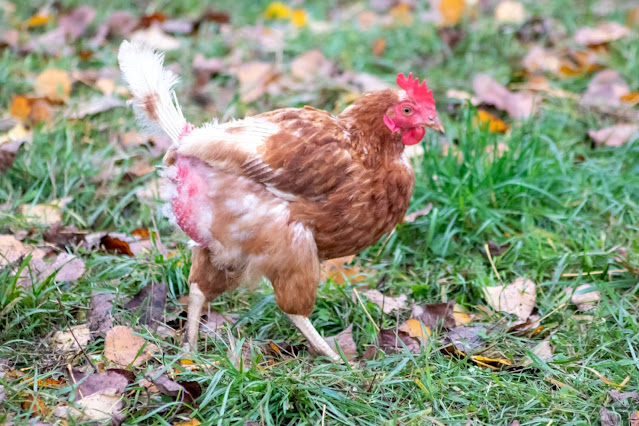WRITER: RANA TALHA
As winter sets in, most chicken owners may notice why is my chicken losing feathers in winter? While it's a common concern, understanding the reasons behind this phenomenon is crucial. In this article, we'll explore seven reasons why chickens lose feathers in winter and provide effective solutions to help keep your flock healthy and happy.
7 Reasons Why chickens losing feathers in winter
Molting:
Chickens typically undergo a natural molting process, where they shed old feathers and grow new ones. Molting is often triggered by changes in daylight hours, and winter's shorter days can initiate this process. During molting, chickens divert energy from feather production to new feather growth, leading to temporary feather loss.
Solution: Ensure your chickens receive a well-balanced diet with sufficient protein to support healthy feather regrowth. Supplementing their diet with feather-boosting nutrients can expedite the molting process.
Poor Nutrition:
In winter, access to natural forage may decrease, impacting the nutritional intake of your chickens. A lack of essential nutrients, especially protein, can contribute to feather loss.
Solution: Provide a high-quality, balanced feed with increased protein content during winter. Consider supplementing their diet with mealworms, sunflower seeds, or other protein-rich treats to support feather health.
Cold Stress:
Extreme cold temperatures can cause stress in chickens, leading to reduced blood flow to the skin and feather follicles. This stress response may result in feather loss as the body conserves energy for vital functions.
Solution: Ensure your coop is well-insulated and draft-free. Provide adequate bedding, and consider using heat lamps or other heating methods to maintain a comfortable temperature for your chickens.
Parasites:
Winter doesn't necessarily mean a break from parasites. Feather mites and lice can still affect chickens during colder months, causing irritation and feather loss.
Solution: Regularly inspect your chickens for signs of parasites and treat them promptly with appropriate poultry-friendly remedies. Clean and disinfect the coop regularly to minimize the risk of infestations.
Overcrowding:
In winter, chickens may spend more time indoors due to inclement weather. Overcrowded coops can lead to feather loss as chickens compete for space and resources.
Solution: Provide ample space for your chickens, ensuring they have enough room to move around comfortably. Consider creating separate areas for feeding, drinking, and roosting to reduce stress and competition.
Inadequate Lighting:
Reduced daylight hours in winter can impact egg production and trigger molting. Insufficient light exposure may disrupt the chickens' natural circadian rhythm, affecting feather growth.
Solution: Supplement natural light with artificial lighting in the coop to maintain a consistent day length. Aim for 14-16 hours of light per day to encourage healthy feather development.
Disease or Illness:
Underlying health issues can manifest in feather loss. Winter conditions can exacerbate existing health problems or make chickens more susceptible to diseases.
Solution: Regularly monitor your flock for signs of illness, isolate any sick chickens, and consult with a veterinarian for proper diagnosis and treatment.
Conclusion
In conclusion, Feather loss in chickens during winter can be attributed to various factors, but with proper care and attention, you can address these issues effectively. By providing a well-balanced diet, maintaining a comfortable living environment, and addressing potential health concerns promptly, you can ensure your chickens remain feathered and happy throughout the winter months.





.jpg)
.jpg)

0 Comments